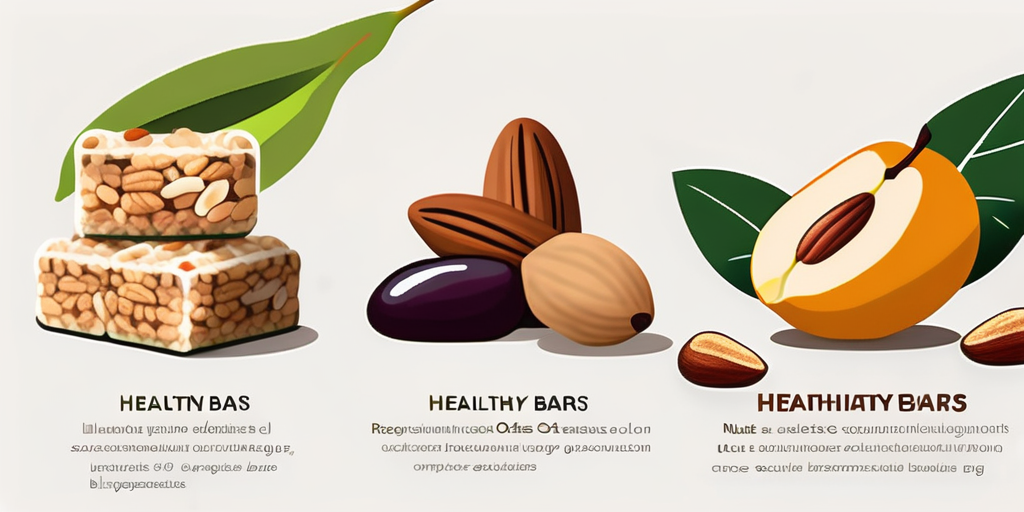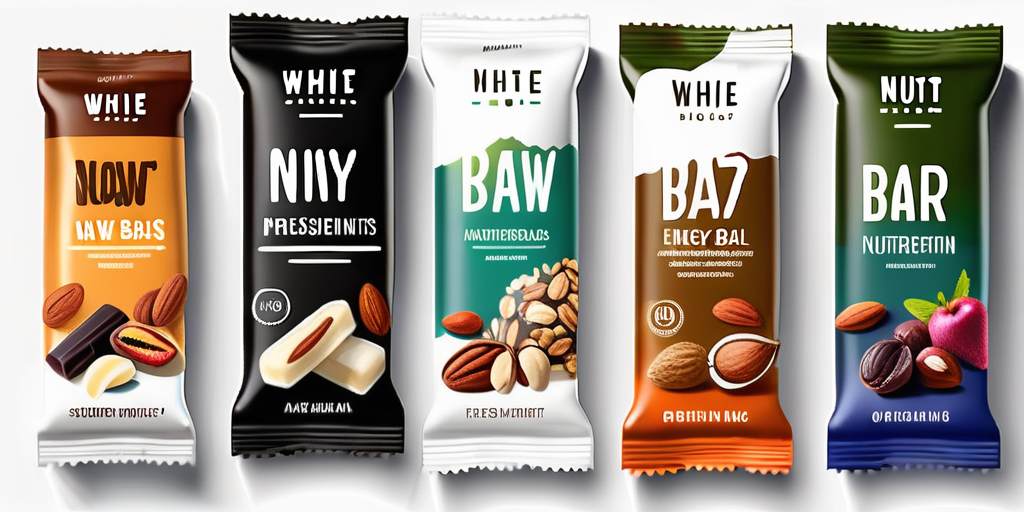In today's fast-paced world, energy bars have become a popular snack choice for those looking for a quick boost of energy. However, with so many options available on the market, choosing a healthy energy bar can be a daunting task. In this ultimate guide, we will explore the key factors to consider when making your selection, as well as debunk common misconceptions surrounding these convenient snacks.
Understanding What Makes an Energy Bar Healthy
To begin our journey, let's delve into what makes an energy bar healthy. One important factor is the inclusion of high-quality protein. Protein plays a crucial role in maintaining and repairing our muscles, making it an essential component of any energy bar worth its salt.
When it comes to protein, not all sources are created equal. Look for energy bars that contain protein from sources like whey, casein, or plant-based proteins such as soy, pea, or hemp. These proteins provide all the essential amino acids our bodies need to function optimally.
In addition to protein, fiber is another vital ingredient to look out for. It aids in digestion, keeps us feeling full for longer, and helps regulate blood sugar levels. A healthy energy bar should contain a good amount of dietary fiber to support overall gut health.
Fiber can come from various sources, including whole grains, nuts, seeds, and fruits. Look for energy bars that incorporate these ingredients to ensure you're getting a good dose of fiber along with your protein. Whole grains like oats or quinoa provide not only fiber but also important vitamins and minerals.
Furthermore, some energy bars contain prebiotic fibers, such as inulin or chicory root fiber, which can promote the growth of beneficial gut bacteria. These prebiotic fibers act as food for the probiotics in our gut, helping to maintain a healthy balance of bacteria and support our immune system.
Lastly, we need to decode the sugar content in energy bars. While sugars are a source of quick energy, excessive sugar consumption can lead to weight gain and other health problems. Choose bars with limited added sugars or opt for naturally sweetened options.
When checking the sugar content, it's important to distinguish between natural sugars and added sugars. Natural sugars, such as those found in fruits, provide essential nutrients along with their sweetness. Added sugars, on the other hand, are often empty calories that offer little nutritional value.
Some energy bars use alternative sweeteners like stevia or monk fruit extract to reduce the amount of added sugars while still providing a satisfying taste. These natural sweeteners have minimal impact on blood sugar levels and can be a healthier option for those watching their sugar intake.
In conclusion, a healthy energy bar should contain high-quality protein, fiber from various sources, and limited added sugars. By choosing energy bars that meet these criteria, you can fuel your body with the nutrients it needs to perform at its best.
Key Ingredients to Look for in Healthy Energy Bars
Now that we understand the basics of a healthy energy bar, let's explore some key ingredients to look out for. Natural sweeteners, such as honey or maple syrup, provide a healthier alternative to artificial sweeteners, which can have negative effects on our health.

When it comes to natural sweeteners, honey is a particularly beneficial ingredient to have in an energy bar. Not only does it add a touch of sweetness, but it also offers a range of health benefits. Honey is known for its antioxidant properties, which can help protect the body against free radicals and reduce the risk of chronic diseases. Additionally, honey has antibacterial properties that can support a healthy immune system and promote digestive health.
Another natural sweetener to keep an eye out for is maple syrup. Not only does it provide a delicious flavor, but it also contains essential minerals such as manganese and zinc. These minerals play a crucial role in supporting various bodily functions, including metabolism and immune system function.
Whole grains are another crucial ingredient to consider when choosing a healthy energy bar. They provide a steady release of energy, keeping us fueled and focused throughout the day. Look for bars that contain oats, quinoa, or brown rice as a source of whole grains.
Oats, in particular, are a fantastic addition to energy bars. They are rich in dietary fiber, which aids in digestion and helps maintain a healthy weight. Oats are also packed with vitamins and minerals, such as manganese, phosphorus, and magnesium, which contribute to overall well-being.
Quinoa is another whole grain that deserves attention. It is a complete protein, meaning it contains all nine essential amino acids that our bodies need but cannot produce on their own. This makes quinoa an excellent choice for individuals following a vegetarian or vegan diet, as it provides a plant-based source of protein.
Brown rice is yet another whole grain option that offers numerous health benefits. It is a great source of complex carbohydrates, which are essential for providing sustained energy. Brown rice is also rich in fiber, vitamins, and minerals, making it a nutritious addition to any energy bar.
For those with nut allergies or preferences, nut and seed-based bars can be a great option. They offer a good source of plant-based protein, healthy fats, and essential minerals. Additionally, they often provide a satisfying crunch that adds to the overall enjoyment of the bar.
When it comes to nuts, almonds are a popular choice in energy bars. They are packed with nutrients, including vitamin E, magnesium, and healthy fats. Almonds have been linked to various health benefits, such as improved heart health and reduced inflammation.
Another nut to look out for is walnuts. They are an excellent source of omega-3 fatty acids, which are essential for brain health and reducing the risk of chronic diseases. Walnuts also contain antioxidants that can help protect against cellular damage and support overall well-being.
If you prefer seed-based bars, consider options that include chia seeds. These tiny seeds are a nutritional powerhouse, packed with fiber, protein, and omega-3 fatty acids. Chia seeds are also rich in antioxidants, which can help fight inflammation and support a healthy immune system.
In conclusion, when choosing a healthy energy bar, it's essential to look for key ingredients that provide both nutritional value and taste. Natural sweeteners like honey and maple syrup offer a healthier alternative to artificial sweeteners, while whole grains like oats, quinoa, and brown rice provide sustained energy. Nut and seed-based bars, such as those containing almonds, walnuts, or chia seeds, offer a good source of plant-based protein, healthy fats, and essential minerals. By selecting energy bars with these ingredients, you can enjoy a delicious and nutritious snack that will keep you energized throughout the day.
Common Misconceptions About Energy Bars
Now, let's address some common misconceptions surrounding energy bars. One common misconception is the belief that energy bars can replace full meals. While they can be a convenient option on the go, they don't provide the full spectrum of nutrients that a balanced meal does. Use them as a snack or supplement, but not as a complete meal replacement.

It's important to understand that energy bars are designed to provide a quick source of energy, typically in the form of carbohydrates. However, they may lack the necessary protein and fiber that a complete meal offers. Protein is essential for muscle repair and growth, while fiber aids in digestion and helps you feel full longer. Therefore, relying solely on energy bars for sustenance can lead to nutritional deficiencies in the long run.
The "gluten-free" and "organic" labels may also lead consumers to believe that a bar is automatically healthy. However, it's essential to read the ingredient list and nutritional information to ensure that the bar aligns with your specific dietary needs and preferences. These labels alone do not guarantee a healthy choice.
For example, some gluten-free energy bars may contain higher amounts of sugar or unhealthy additives to compensate for the lack of gluten. Similarly, organic energy bars may still be high in calories and saturated fats. Therefore, it's crucial to look beyond the labels and consider the overall nutritional profile of the bar.
Furthermore, keep in mind that not all energy bars are created equal. Some may be loaded with artificial sweeteners, preservatives, and other additives that can have negative effects on your health. Reading the ingredient list can help you identify any potential allergens or ingredients that you prefer to avoid.
Lastly, don't fall for the myth that "low fat" energy bars are always the best option. While reducing unhealthy fats is beneficial, it's important to remember that some healthy fats are necessary for our bodies to function optimally. Look for bars that contain a balance of good fats, such as those found in nuts and seeds.
Healthy fats, like monounsaturated and polyunsaturated fats, are essential for nutrient absorption, hormone production, and brain function. They also provide a feeling of satiety, which can help prevent overeating. So, instead of solely focusing on the fat content, consider the quality of fats present in the energy bar.
In conclusion, energy bars can be a convenient and portable snack option, but they should not be relied upon as a complete meal replacement. It's important to read the labels, understand the nutritional information, and consider your specific dietary needs when choosing an energy bar. By doing so, you can make informed choices and ensure that you are getting the most out of these handy snacks.
How to Incorporate Energy Bars into Your Diet
Now that we have a solid understanding of what makes a healthy energy bar and have debunked common misconceptions, let's explore how to incorporate these bars into your diet effectively.

Timing is essential when consuming energy bars. They can be a great pre- or post-workout snack, providing a quick source of energy and aiding in muscle recovery. Whether you're hitting the gym or going for a run, having an energy bar before your workout can give you the fuel you need to power through. On the other hand, enjoying an energy bar after your workout can help replenish glycogen stores and promote muscle repair.
Additionally, energy bars make for an excellent mid-afternoon pick-me-up to combat that dreaded energy slump. Instead of reaching for a sugary snack or a cup of coffee, grab an energy bar to give yourself a sustained boost of energy. The combination of carbohydrates, protein, and healthy fats in these bars can provide a steady release of energy, keeping you focused and alert throughout the day.
Pairing energy bars with other foods can enhance their nutritional value and make for a more satisfying snack. Consider enjoying a bar with a piece of fruit or a small handful of nuts to balance out the macronutrient profile and increase satiety. The fiber from the fruit and the protein from the nuts can help slow down the digestion of the energy bar, preventing blood sugar spikes and crashes.
Furthermore, incorporating energy bars into your diet doesn't mean you have to sacrifice taste or variety. With a wide range of flavors and ingredients available, you can choose bars that cater to your preferences. From chocolate chip to peanut butter and everything in between, there's an energy bar out there for everyone.
Lastly, portion control is crucial when incorporating energy bars into your diet. While they can be a healthy snack option, it's important not to exceed your daily caloric needs. Pay attention to the serving size and consume in moderation. If you find it difficult to stick to one bar, consider cutting it in half and saving the other portion for later.
By understanding the key factors that make energy bars healthy, recognizing common misconceptions, and learning how to effectively incorporate them into your diet, you can confidently choose energy bars that align with your health and wellness goals. Remember to read labels, prioritize high-quality ingredients, and enjoy these convenient snacks in moderation. Here's to your health and vitality!




